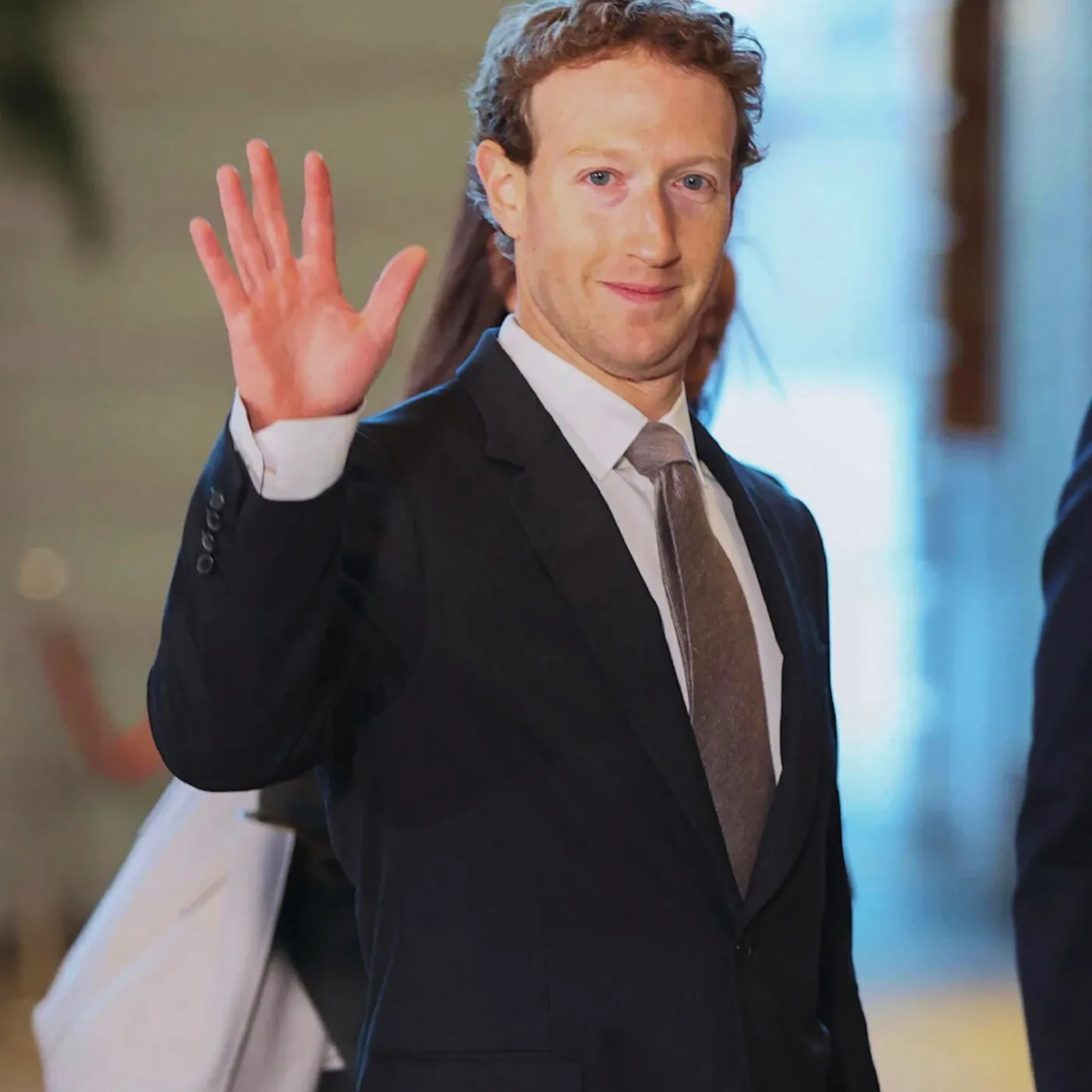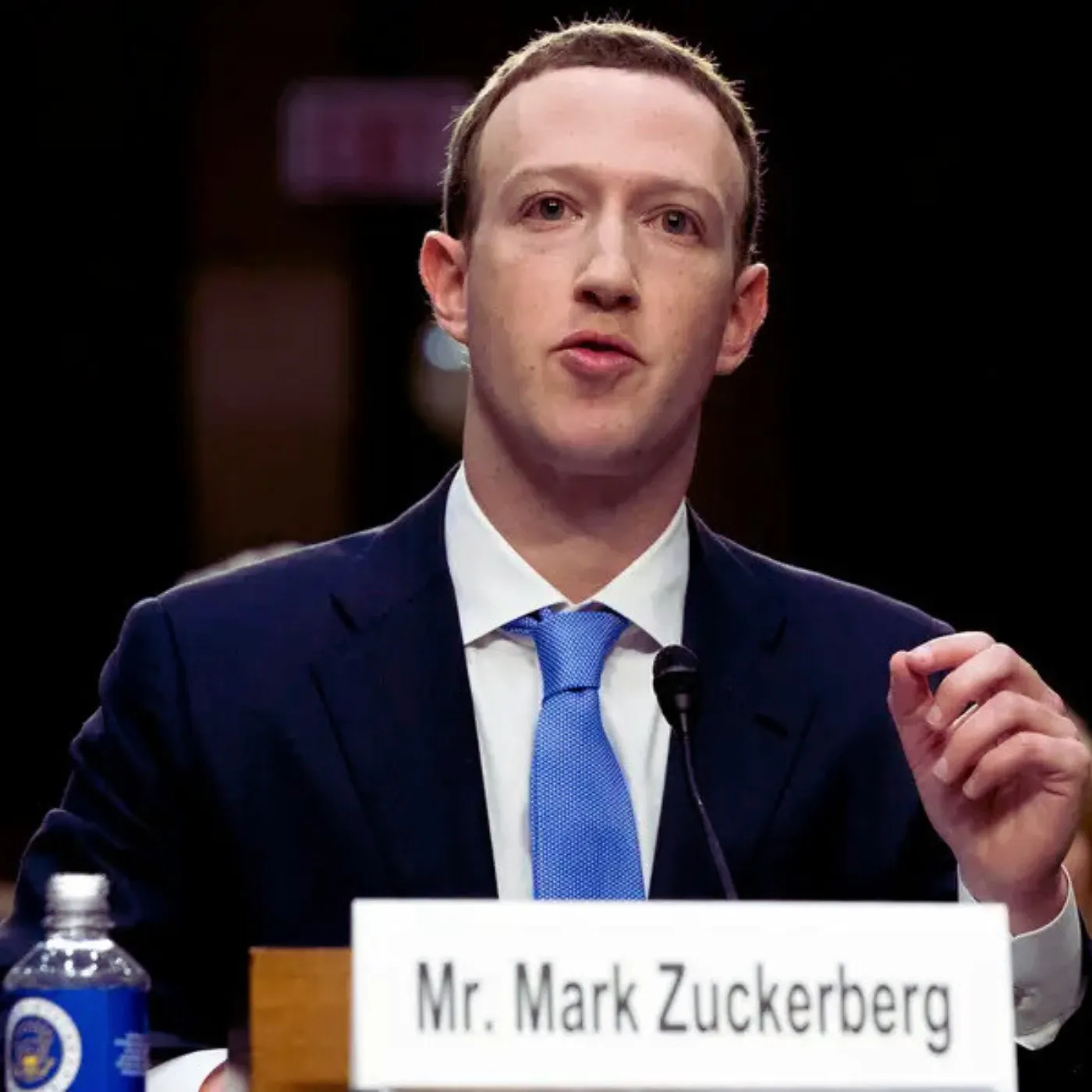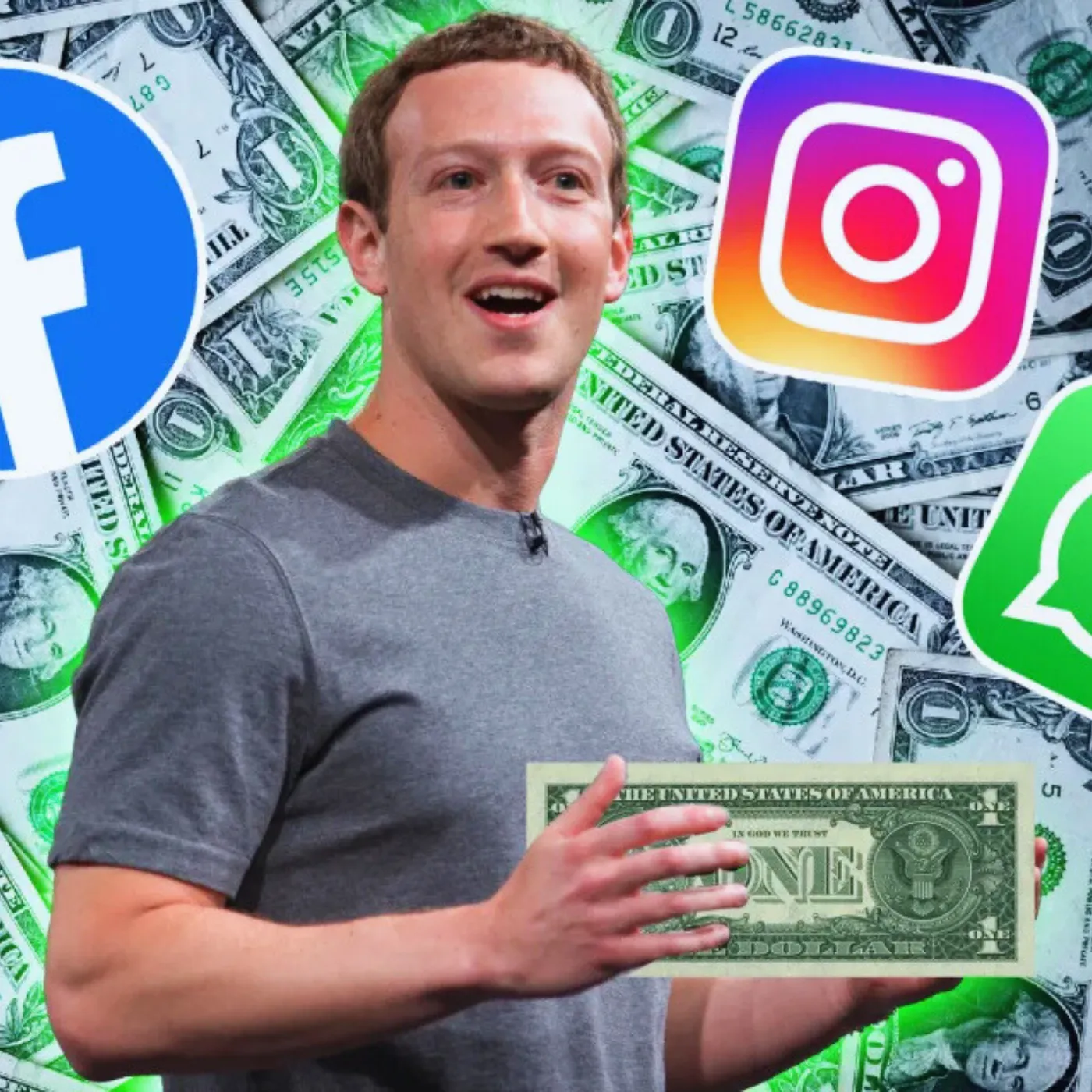When it comes to the tech world, few names carry as much weight as Mark Zuckerberg. The founder and CEO of Meta—formerly Facebook—has been at the center of some of the most ambitious, controversial, and downright shocking moves in the history of social media.
But behind the multi-billion-dollar empire, there lies a story that rarely gets told: a massive early mistake that could have derailed everything, yet somehow, Zuckerberg emerged unscathed and even seemingly indifferent.
In an interview that has resurfaced multiple times over the years, Zuckerberg openly admitted to an error in the early days of Facebook that cost him billions of dollars. What’s truly fascinating, though, is the nonchalant way he described the mishap. While most CEOs would tremble at the thought of losing such vast sums, Zuckerberg’s reaction was starkly different: “It’s fine.”
For many, this casual dismissal seems almost shocking—how could someone lose so much money and not panic? Yet this moment is a masterclass in the mindset of a tech visionary, and the story behind it sheds light on Zuckerberg’s business philosophy, his approach to risk-taking, and his uncanny ability to turn setbacks into opportunities.
The Mistake That Shocked Investors
In the earliest days of Facebook, Zuckerberg and his team were navigating the murky waters of rapid tech growth. Decisions had to be made fast, and not all of them landed as intended. According to insiders, the critical error involved a miscalculation in either acquisition timing, user growth strategy, or monetization planning—details that Zuckerberg himself has kept vague, fueling endless speculation in the media.
What is clear is that this misstep cost the company billions in potential revenue and could have threatened Facebook’s dominance in the social media space. Analysts and investors were reportedly stunned, some even predicting that the young CEO had overreached, putting his company’s future at serious risk.
Why Zuckerberg Was “Fine” With It
Here is where the story takes a turn that many would call bizarre or even reckless. Instead of showing panic or defensiveness, Zuckerberg displayed a rare calm. “It’s fine,” he said, signaling an approach to business that is both refreshing and controversial.
Industry experts suggest that Zuckerberg’s reaction can be attributed to several key factors:
- Long-Term Vision: Zuckerberg has always been known for his forward-thinking approach. By focusing on the bigger picture, he understands that short-term losses do not necessarily translate to long-term failure. This philosophy has allowed him to weather storms that would have toppled other tech giants.
- Data-Driven Confidence: Facebook’s early strategy relied heavily on data analytics and user behavior metrics. Even when mistakes were made, Zuckerberg trusted the data and his team to course-correct efficiently, minimizing lasting damage.
- Psychological Resilience: Many psychologists and business analysts point out that Zuckerberg’s reaction is indicative of high resilience. Accepting failure, rather than fearing it, reduces stress and allows leaders to innovate without constraint.
- Calculated Risk-Taking: By admitting the mistake openly, Zuckerberg also sent a message to the market: he is human, but he is in control. This transparency can be both controversial and strategic, maintaining trust while signaling dominance.
The Media Frenzy
When news of Zuckerberg’s confession hit the press, it sparked a wave of headlines, tweets, and heated discussions. Some media outlets framed it as a reckless billionaire shrugging off disaster, while others highlighted it as a lesson in modern entrepreneurship.
The story was picked up by tech blogs, mainstream news, and social media platforms. On Facebook itself, users debated the wisdom of such a casual response. Comment sections lit up with reactions ranging from admiration—“That’s how you handle billions!”—to criticism—“Irresponsible much?”
This episode demonstrates the power of personal narrative in business reporting. Zuckerberg’s willingness to discuss mistakes not only humanizes him but also drives engagement and virality, which in turn keeps Meta and its CEO in the cultural spotlight.

What This Means for Entrepreneurs
Zuckerberg’s approach offers several lessons for both tech entrepreneurs and established business leaders:
- Embrace Mistakes: One of the most valuable traits a CEO can have is the ability to learn from failure. By not overreacting, Zuckerberg maintains focus on strategic priorities.
- Think Long-Term: Billion-dollar mistakes can seem catastrophic, but in a fast-moving industry like tech, a long-term vision often outweighs immediate financial impact.
- Transparency Pays Off: Being candid about missteps can build credibility. Investors and users alike appreciate honesty, even when it comes at a financial cost.
- Resilience is Key: Emotional composure in the face of loss is a powerful tool. It allows leaders to make better decisions under pressure, rather than reacting impulsively.
A Billion-Dollar Lesson in Humility and Strategy
While the numbers involved in Zuckerberg’s early mistake are staggering, the real story isn’t just about the money—it’s about mindset, leadership, and perspective. By publicly admitting to the error, he has set an example that resonates in boardrooms and social media alike.
The lesson for tech visionaries is clear: mistakes are inevitable, but the way leaders respond to failure can define their career and influence public perception. Zuckerberg’s “it’s fine” moment is a case study in controlled risk-taking, demonstrating that even when billions are on the line, confidence and strategy matter more than panic.
The Controversy Continues
Despite the positive spin, not everyone is convinced by Zuckerberg’s attitude. Critics argue that his calm demeanor may reflect hubris or a lack of accountability. They point to other instances where Facebook has faced PR crises, privacy concerns, and regulatory scrutiny, suggesting that early mistakes may compound over time.
Supporters, however, counter that Zuckerberg’s ability to shrug off temporary losses is exactly what has made Meta a global tech powerhouse. They argue that many would have crumbled under the pressure of a billion-dollar setback, whereas Zuckerberg not only survived but thrived.
This dichotomy keeps the story relevant and divisive, fueling discussions on forums, social media, and news platforms. Every new mention of Zuckerberg’s early misstep prompts renewed debate about how billionaires handle mistakes, and whether the rest of the business world can—or should—follow suit.
The SEO Angle
From a digital marketing perspective, stories like this are gold. Keywords such as Mark Zuckerberg, Facebook, billion-dollar mistake, tech leadership, and entrepreneurship naturally attract high search volume. Social media engagement skyrockets when articles include terms like shocking, admits, revealed, and mistake, especially paired with trending emojis or phrases like “it’s fine”.
Moreover, the controversial yet educational tone ensures readers click, comment, and share, boosting both organic reach and algorithmic visibility. Zuckerberg’s own celebrity status amplifies the story’s reach, making it a perfect storm for viral content.

Final Thoughts
Mark Zuckerberg’s early misstep is more than just a footnote in tech history—it’s a lesson in strategy, resilience, and public perception. By admitting to the billion-dollar blunder and shrugging it off, Zuckerberg demonstrates a rare combination of calm under pressure, calculated risk-taking, and long-term vision.
Whether you admire him or critique him, one thing is undeniable: his approach sparks debate, intrigue, and fascination, keeping the world’s attention firmly on him and the empire he has built.
In the end, Zuckerberg’s story reminds entrepreneurs and tech enthusiasts alike that mistakes—even ones that cost billions—do not define your trajectory. It’s the response, the mindset, and the ability to leverage lessons from failure that ultimately determine success.
So, the next time someone asks why Mark Zuckerberg seems unfazed by monumental mistakes, remember this: in the cutthroat world of tech, it’s not just about the money—it’s about vision, strategy, and the confidence to say, “it’s fine.”





